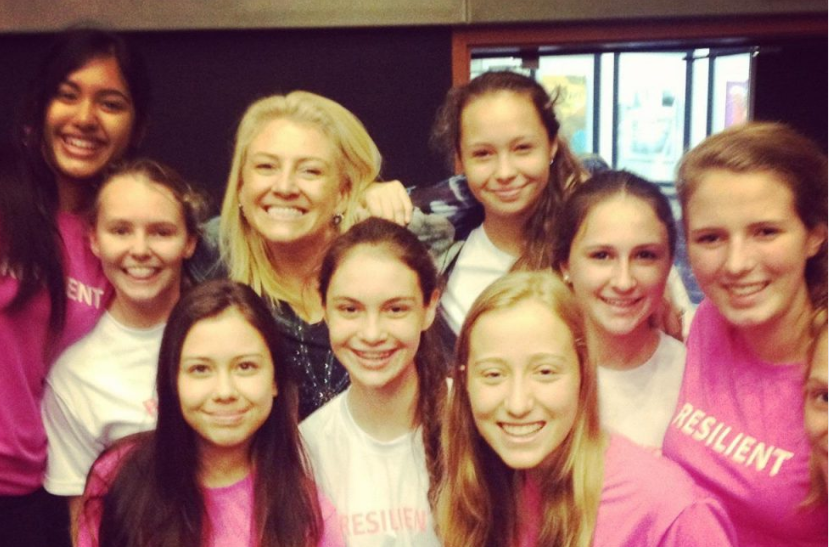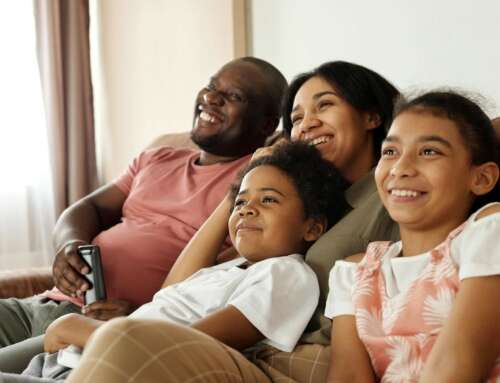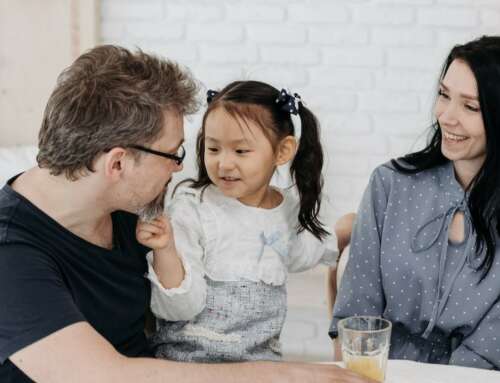Viewing the younger generation as either trouble or troubled is nothing new.
In the 4th century BC even the usually open-minded Plato clutched his proverbial pearls in despair, “What is happening to our young people? They disrespect their elders, they disobey their parents. They ignore the law. They riot in the streets inflamed with wild notions. Their morals are decaying. What is to become of them?”
Today, thanks to the online world, our lamentations and judgments provide a running commentary not only to, but on the lives of many young people.
I’m a teen educator who has worked with adolescents for the past 25 years. And I’m the mother to two teens (daughter Teyah, 17, and son Kye, 15). What strikes me is that the discourse about teens often bares very little resemblance to what the young people I meet are actually like.
Far from being obsessed with selfies, sexting and sponging off their parents, they may well be our hardest-working and most civic-minded generation ever.
If we look beyond the media-fuelled stereotypes, shibboleths and anecdotes, what does the actual data show? There are actually plenty of positive stories about teens that could make headlines.
School retention and the progression on to higher education courses continues to increase (eight out of ten young people aged 15 to 19 are enrolled in education and training).
Despite these academic pressures, young people also do almost twice the volunteer work that adults do.
They are having less unprotected sex (and having sex less often than their parents did at the same age), taking fewer drugs and smoking less than their parents did, and many are far more aware of the risks of alcohol consumption.
Drug and alcohol educator, Paul Dillon, is adamant that teens are doing remarkably well in an increasingly complex world;
“Although we go on about how bad our kids are at the moment, with the media reinforcing the myth that we have the worst group of young people ever, in actual fact available research suggests that we’re doing better with substance abuse than we used to. We are certainly seeing some positive results with more young people reporting that they are ‘non-drinkers’ than ever before. We’re also seeing far fewer ‘risky drinkers’. Unfortunately though, those young people who do drink in a risky way are drinking in a much riskier way than in the past – and it tends to be this group that receives all the attention.
As far as illicit drugs are concerned the data is a little more limited (we are still waiting for the Federal Government to release the latest secondary school drug survey), but what we do have reveals we have some of the lowest rates of recent drug use (based on the last 12 months) we have seen since records began.”
Speaking Up
Dr Briony Scott, Principal at Sydney girls’ School Wenona, shares my bewilderment at why we seem so keen to misjudge our youth;
“There’s such a disconnect between the language that society uses to describe teens and the reality of what adolescents are like. People tend to think their teenager (if they have one or know one) is different as they are fine, but that all other teenagers have issues. Yet most kids, by a country mile, are absolutely gorgeous people who are just doing life the best they know how. If you stop and actually talk to teens, the stories they can tell you about their lives are mesmerising. They can tell you their opinions and thoughts on things. I’ve never met a child who just grunts or is monosyllabic. We just need to start asking – and listening.”
18-year-old Sebastian Starcevic, who recently graduated from year 12 at boys’ school St Joseph’s College, Geelong, certainly is a young man with plenty to say. He started writing for his local newspaper when he was 16 as their “voice for youth”. His writing is particularly focused on LGBTQI rights and gender equity. He now also writes for various national online opinion sites and is studying journalism at RMIT.
Starcevic’s school is the only Catholic “Safe School” in the country, something he was instrumental in helping achieve. “The staff were really supportive of my work,” he says. “They always cut out my articles from the paper and put them up in the library. I sat on the committee who hosted a diversity day. Being a boys school it is a bit of a man cave and there’s a very strong sporting culture (especially AFL) but I was really passionate about bringing feminism into the conversation and talking about homophobia there.” Why does he think teens are so often dismissed?
“I think there’s a culture of infantilisation. We are taught consistently that young people’s opinions and views don’t matter. A lot of the comments I get on my online pieces say things like ‘You’re young, why are you talking?’ If you treat young people that their opinions mean nothing then there is a learned helplessness syndrome – then they’ll start to think their opinions mean nothing too and they won’t voice them. More than anything we shouldn’t be trying to quash that spark in young people. We should be cultivating it.
Put it this way, 20 years ago, there wasn’t a push for marriage equality, there wasn’t a broad dialogue on transgender rights, we weren’t talking so openly in the mainstream about bathroom rights. If you go to any protest regarding sexuality there will be a higher percentage of young people. That says a lot about the fact that we are switched on and engaged and we are willing to talk about this stuff.”
Expressing Themselves
For 16-year-old Queensland student Tia Gostelow, music provides her with an outlet for her opinions. “Teens are often drawn to music – to listening to it, dancing to it. I grew up on a small island off the coast of the Northern Territory in an Indigenous community listening to all kinds of music with my parents. When I was 10 we moved to Mackay and then I started writing and performing my own music. ”
Tia Gostelow (www.abc.net.au/news/2016-08-11/unearthed-highs-indigenous-initiave-winner-reflects/7719352).
Gostelow recently won youth radio station Triple J’s Unearthed High’s Indigenous Initiative Competition; “One of the things that I love about music is that you’re judged on the quality of what you produce, and not just on your age. When I sing, I feel like I get taken seriously. That doesn’t always happen when you are a teen girl.”
Writing songs is also a more socially acceptable way for Gostelow to vent teen frustrations; “Creativity is a really important way for many teenagers to express all they are feeling and to play around with our emerging ideas. Some teens do this through posting lots of stuff on social media. I write songs.”
It strikes me as significant that whilst Gostelow is encouraged to share her feelings via music, when other teens do this via social media, they risk being heavily criticised should they overstep the mark. Dr Scott believes double standards are often at play: “I don’t know why when kids make mistakes online we are so surprised … when you have Congressman in the US taking photos of their genitalia…. Why we’re surprised that teens say something stupid online or like an image that is poor form when you look at Twitter and see adults being vitriolic and offensive. Kids look towards adults to get their benchmark. If the adults are behaving in certain ways? Then that’s the way teens will behave too. I think teens are doing a phenomenal job of navigating their way through tools we (the adults) are all still learning to use safely and responsibly.”
The Giving Generation
Carina Sirolli, a 17-year-old Year 12 Sydney student, is a case study in why we shouldn’t assume that all texting is necessarily either destructive, or a waste of time. “In my spare time I am often on my phone, and if you saw me on it you might think that’s all I do, but apart from studying and volunteering I work part time at McDonalds, and play Representative basketball. I’m also Vice Captain at my school.”
There’s a lot of social networking required to organise her life. When I meet with her, the thing that strikes me most about Sirolli is what a whirlwind of excitement and possibilities she is.
It’s easy to see why her enthusiasm has been contagious; “I recently organised a donation drive for the children staying at a local refuge for women and children fleeing domestic violence, The Sanctuary. I managed to receive over 600 lunchbox items and $2500 cash from people at my school and my Dad’s work colleagues.”
When asked why, when so many teens do juggle school, work, sport. relationships and still volunteer for their community, adults tend to like to stigmatise them as self-obsessed, she pauses, “I can understand how going through the schooling system can make young people very focused on themselves. Especially in the senior years as you are ranked against everyone else…it is drilled into us especially in senior school to do the best for yourself. But it’s important to make sure you’re not totally focused on your own academics. In my circle of friends there is a strong sense of social justice. It’s a false perception that teenagers are just on their phones all day and don’t do anything to help others.“
Connecting
Grace Halphen, the 15-year-old Victorian creator and editor of the book, Letter To My Teenage Self, used her work as a tool to help other teens who might be struggling. Halphen found transitioning from primary to high school difficult and, at aged 14, started asking celebrities to offer her their reflections on being a teen. “I’ve had contributions from people like Chet Faker, Judith Lucy, Maggie Beer… I wanted to turn what happened to me into something healing for other teens too.”
The adults she asked to participate often told her the activity made them feel more empathetic towards teens and reminded them of what this stage in life is really like; with all its swirling emotions and complexities. “It would be great if every adult wrote a letter to their teen self. That might be something really powerful…”
There are numerous very real issues teens (and many adults) struggle with that we do need to address: body image angst, dealing with stress and anxiety, navigating technology safely, developing and maintaining respectful relationships, just to name a few.
But whilst stereotypes might be easy to relate to, they are rarely helpful. The one thing I know for sure is the way forward lies in sharing positive stories about teens and in connecting with them, not in spreading moral panic, or in policing and patronising them.
The way forward also lies in celebrating wins – not only the gold medal kind, but the quieter ones as well.
– Danielle Miller
Original Article: Positive Stories About Teens Rarely Make Headlines – Here’s why that Matters
Image Source: enlighteneducation.com
Dannielle Miller is the co-founder and CEO of Enlighten Education, Australia’s leading provider of in-school workshops for girls. Enlighten conducts workshops with more than 20,000 girls each year in Australia, New Zealand, Singapore and Malaysia. She is also the founder of Goodfellas, whose presenters deliver empowering workshops to boys.
Dannielle is the author of five books including the best-selling The Butterfly Effect: A Positive New Approach to Raising Happy, Confident Teen Girls and Gratitude: A Positive New Approach to Raising Thankful Kids with Vanessa Mickan. She regularly writes for leading Australian print and online publications including RendezView and Women’s Agenda, has a bi-weekly Opinion column in the Saturday edition of the Daily Telegraph, and writes features for Stellar magazine.
Dannielle has been named the NSW/ACT Small Business Champion Entrepreneur and received an Australian Leadership Award. The media has named her one of Australia’s emerging leaders (The Australian), one of Sydney’s most influential people (The Sydney Morning Herald) and one of the most inspiring women over 40 (Prevention); and she was a Finalist for InStyle’s Women of Style Awards.
In 2018 she was one of four Finalists for the NSW Premier’s Award for Woman of the Year, and the winner of the Suicide Prevention Australia Life Award for excellence in media reporting.








Leave A Comment